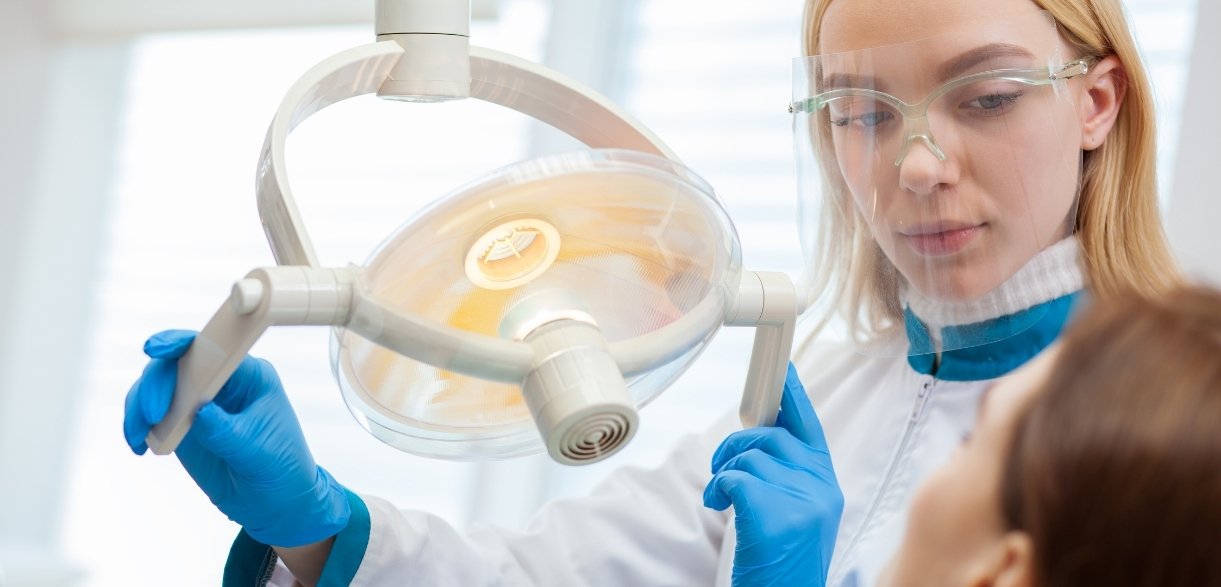
Dental emergencies can occur suddenly, causing stress and discomfort. Quick action is crucial to reduce pain, prevent further damage, and safeguard your overall health. Whether you’re dealing with a knocked-out tooth, severe pain, or a broken tooth, knowing the right steps to take can make a significant difference. In this guide, we cover common dental emergencies, provide tips on how to respond effectively and highlight the importance of being prepared for unexpected situations to protect your smile.
What Are Dental Emergencies?
Dental emergencies refer to situations requiring immediate attention to address pain, injury, or other urgent dental issues. Here are some examples:
- Severe toothache: Persistent pain could signal an infection or damage.
- Knocked-out tooth: Requires immediate care to increase the chances of saving the tooth.
- Chipped or cracked teeth: This can expose nerves and cause sensitivity or infection.
- Lost dental fillings or crowns: Leaves your tooth vulnerable to damage.
- Soft tissue injuries: Cuts or wounds in the gums, tongue, or lips can lead to bleeding.
Acting promptly during these moments ensures your dental health isn’t compromised.
How to Handle Common Dental Emergencies?
It’s helpful to know how to manage urgent situations before reaching a dental professional. Here’s a quick guide to emergency dental care in Frisco:
1. Toothaches
- Rinse your mouth with warm water.
- Gently floss to remove food particles.
- Avoid applying aspirin directly to the tooth.
2. Knocked-Out Tooth
- Pick the tooth up by the crown, not the root.
- Rinse it gently with water without scrubbing.
- Try to place the tooth back in its socket if possible.
- If not, keep it in milk or saline solution while seeking help.
3. Chipped or Broken Teeth
- Save any broken pieces.
- Rinse your mouth with warm water.
- Apply a cold compress to reduce swelling.
4. Lost Filling or Crown
- Use dental cement or sugar-free gum to cover the exposed area temporarily.
- Avoid chewing on that side of your mouth.
5. Soft Tissue Injuries
- Rinse your mouth with salt water.
- Apply pressure with a clean cloth or gauze to stop bleeding.
- Use a cold compress to reduce swelling.
When to Seek Emergency Care?
Not every dental issue needs urgent attention. However, certain signs indicate the need for immediate care:
- Intense pain that doesn’t subside.
- Swelling in your face or gums.
- Bleeding that doesn’t stop after 10 minutes of pressure.
- Difficulty breathing or swallowing.
Prompt action is crucial to avoid complications. Visit your dentist as soon as possible if you notice any of these symptoms.
Tips to Prevent Dental Emergencies
While some situations are unavoidable, you can take steps to minimize the risk of dental emergencies:
- Maintain oral hygiene: Brush and floss daily to prevent decay and gum disease.
- Wear protective gear: Use a mouthguard during sports or other activities.
- Avoid hard foods: Refrain from biting down on ice, hard candy, or non-food items.
- Regular check-ups: Visit your dentist every six months to catch potential issues early.
Prevention is often easier and less stressful than dealing with an emergency.
Why Preparation Matters?
Being prepared can save time and reduce panic during a dental emergency. Keep these essentials on hand:
- Contact information for your dentist.
- A small container for transporting knocked-out teeth.
- Dental cement or wax for temporary fixes.
Quick access to these items can make a stressful situation more manageable.
The Role of Your Dental Team
Having a reliable dental professional is invaluable when emergencies arise. They can provide guidance, timely care, and solutions tailored to your needs. Don’t hesitate to contact your dentist if you suspect something is wrong, even if it seems minor at first.
Dental emergencies can strike unexpectedly, causing pain and anxiety. Knowing how to respond and where to seek help ensures you stay calm and act quickly. Preparing in advance, like having a dental professional’s contact information ready, can make a big difference. Staying informed about common emergencies and their solutions helps protect your smile and overall oral health. Confidence comes from being ready for the unexpected and taking prompt action when needed.


